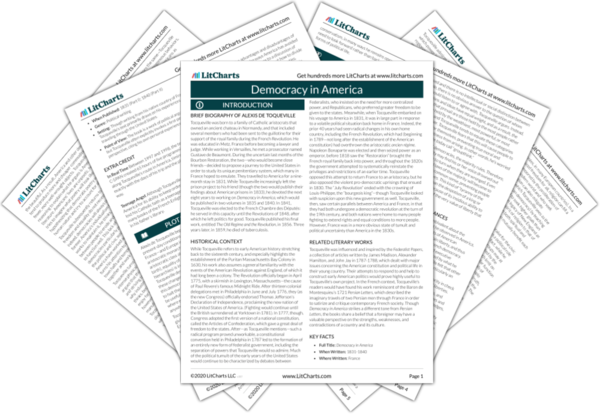Established for the first time around 1650, the American township was a regional subdivision of space and government that would come to be characterized by—as Tocqueville saw it—a peculiarly American embrace of local power, interests, and political participation. At the time he was writing, townships were responsible for much of the day-to-day activities of government, from collecting taxes to organizing meetings about political issues and questions that may not be relevant to a larger community. Tocqueville sometimes personifies the township, imagining it as a kind of political person itself: just as people have both political rights and duties, the township has political rights—the ability to collect taxes and build schools, for instance—but also must fulfill certain duties to the central State, such as allowing a road to be established within its purview. Such comparisons allow Tocqueville to express his admiration at the complex interrelation of individual people and politics in America. He admires the township as both a model of government and as a representation of American politics as a whole, one in which local initiative and the ability of citizens to feel invested in political affairs is embraced and encouraged. American liberty is enabled by the ability of townships to thrive, he argues—but townships also embody American liberty at its best.








